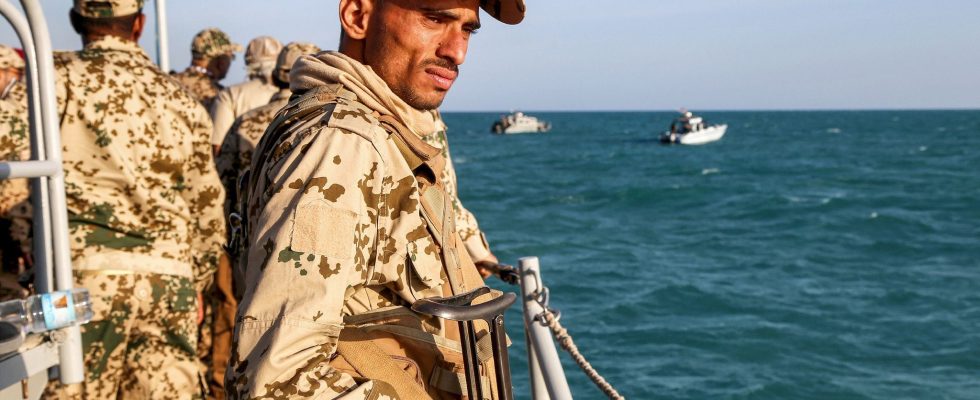The international community wanted to react very quickly. After the announcement yesterday of the formation of a coalition of ten countries to fight against the attacks perpetrated by the Houthis in the Red Sea, it met for the first time this morning by videoconference, indicated, Tuesday, December 19 , the French Ministry of Foreign Affairs.
“The recent escalation of irresponsible attacks” by the Houthis “from Yemen threatens the free flow of commerce, endangers the lives of innocent sailors and contravenes international law,” the head of the Pentagon also declared on Monday. “This is why today I am announcing the establishment of Operation Prosperity Guardian,” he added, while some companies have decided to suspend their crossings.
Attacks on ships in the strait
Since the end of October, the rebels, who control part of the territory of this country plunged into civil war, have carried out their threat: several attacks on ships crossing the Bab al-Mandab Strait, located between Yemen and Eritrea. south of the Red Sea, have been claimed.
“We will carry out combat missions until the Zionist entity stops its attacks on Gaza,” warned the commander of the rebel naval forces, General Mohammad Fadl Abdelnabi. Allied with Iran and supporters of Palestine, the Houthi rebels declared that their actions would continue “until Israeli aggression against our brothers in the Gaza Strip ceases.”
Houthis determined to continue attacks
After the announcement of the formation of a coalition by the United States, the rebels were quick to react. “Even if America mobilizes the entire world, our military operations will not stop […] whatever sacrifices it costs us,” Mohammed al-Bukhaiti, a senior Houthi official, said on X, formerly Twitter.
According to the Pentagon, rebels have launched more than 100 attacks in the Red Sea since October 7, during which around ten ships were targeted because of their supposed proximity to the Israeli state. In November, they seized the Galaxy Leader, a commercial ship chartered by a Japanese company, and took the 25 crew members, still held in Yemen, hostage.
Close to Iran and Lebanese Hezbollah, they benefit from advanced equipment, such as Chinese drones and missiles, explains to The Express Pascal Ausseur, director of the Mediterranean Foundation for Strategic Studies, a research center, who describes the means in the possession of the Houthis as “weak”. He nevertheless insists on the fact that “the technological balance of power between the West and the rest of the world has diminished”, and on the cost of defense operations.
The blurred contours of the coalition
If US Secretary of Defense Lloyd Austin announced on Monday the formation of a coalition of ten countries, mainly comprising Western countries, such as France, the United Kingdom, Italy, Spain, Canada, Netherlands and Norway, as well as the Seychelles and Bahrain, the contours of its action still seem poorly defined. Pascal Ausseur, who recalls the large number of coalitions already existing in the region, in particular to fight against piracy, puts the American announcement into perspective: “all of the countries mentioned are already allies via other coalitions in place in the region” .
He also notes the more sensitive nature of this alliance linked to the war between Israel and Hamas: in this context, “it is very complicated for the Arab countries to appear alongside the United States”, he underlines . Egypt, a member of the CTF153 coalition which supports the “task force” announced by the United States, is not one of the countries mobilized.
Asymmetric commitments
Since the announcement of the coalition, the positions taken by its members have also illustrated asymmetrical commitments: while Italy announced on Tuesday the sending of a frigate to the Red Sea “in the coming hours”, France excluded at this stage from providing more resources in the region. Spain, for its part, has distanced itself from the coalition: the country “depends on the decisions of the European Union and NATO and, therefore, will not participate unilaterally”, indicated the Ministry of Defense in a statement to AFP.
Pascal Ausseur especially perceives “a lot of gesticulations” on the side of the coalition as well as that of the Yemeni rebels. “No one wants to escalate” tensions, he says. The means put in place by Western countries should be limited to deterrent actions and a few interventions, such as the interception of drones, which can however show their effectiveness against attacks.
